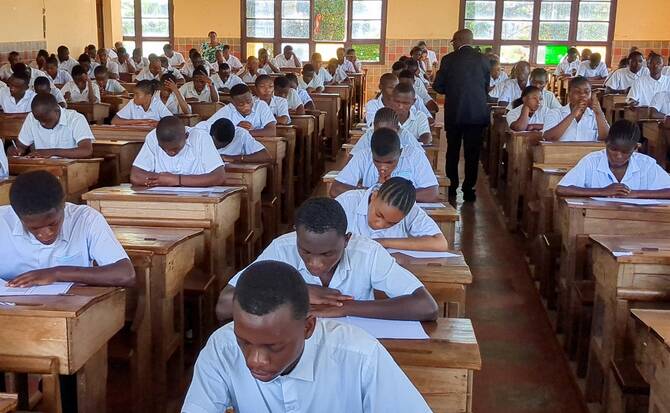Tens of thousands of secondary school students in rebel-controlled regions of eastern Democratic Republic of Congo (DRC) began their state examinations this week, overcoming security threats and logistical hurdles. The exams mark a rare moment of cooperation between the Congolese government and the M23 rebels, who currently control major parts of North and South Kivu provinces.
M23, an armed group backed by Rwanda, seized key eastern cities earlier this year and has since been attempting to portray itself as a capable governing force. At the same time, African leaders, alongside officials from the United States and Qatar, continue to push for a negotiated peace to resolve the decades-long conflict rooted in the aftermath of the 1994 Rwandan genocide.
The national exams, essential for university admission, began on Monday and are scheduled to run through mid-June. Administering them in rebel-held territories required government officials to travel from the capital, Kinshasa, to deliver exam materials under high-risk conditions.
Jean-Marie Mwayesi, an education official in South Kivu, confirmed that all 111 exam centers in his jurisdiction received materials on time. “Thanks to the combined efforts of our teams and partners, all centers have been served,” he stated.
To support students affected by the conflict, President Félix Tshisekedi’s administration waived exam fees—normally over $40—for students in North and South Kivu.
Although M23 opposes the current government, its leader Bertrand Bisimwa told Reuters that the group still acknowledges Kinshasa’s authority over national education. “Our presence in the east does not make this a separate country,” Bisimwa said. “The education of our children must be kept out of political disputes—it’s a shared responsibility.”
Human rights organizations have accused M23 of grave abuses, including killing civilians and children—allegations the group denies.
In Bukavu, the South Kivu capital under M23 control since February, student Exauce Katete expressed confidence in the security arrangements. “There are plainclothes officers outside, everything is calm and going well,” he said.
Despite the challenges, attendance remained strong. Out of 44,000 registered students in Mwayesi’s zone, nearly 42,000 showed up. He speculated that the missing students may have been displaced by ongoing clashes.

